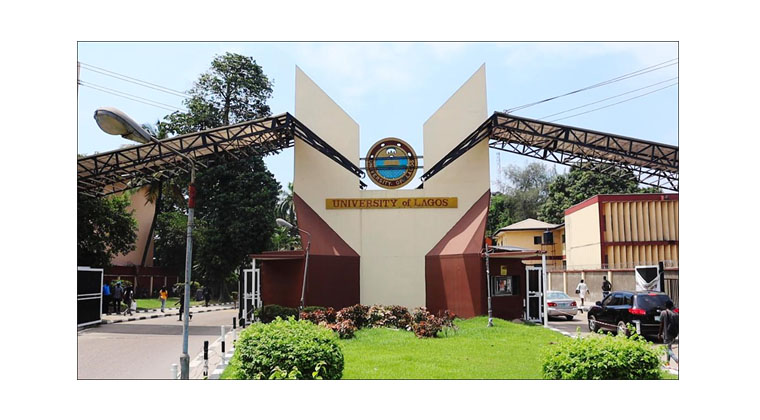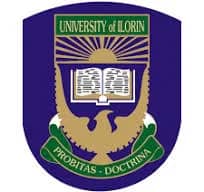education
Universities Face Disconnection Amidst Soaring Energy Costs

Nigerian universities are currently in turmoil due to the escalating costs of electricity across the country. Several institutions have been disconnected from the national grid due to substantial unpaid bills owed to DISCOs, while others still connected are struggling with mounting debts amounting to millions of naira.
The Federal Government, through the Nigerian Electricity Regulatory Commission (NERC), recently mandated an immediate increase in electricity tariffs starting from April 3rd. This directive aims to ensure that electricity investors can cover their operational expenses, with Band A customers expected to receive an average of 20 hours of electricity supply daily, despite widespread complaints of inconsistent supply.
The College of Medicine, University of Lagos, for instance, has been severely affected by this tariff revision, resulting in a staggering bill of N252,631,305.52 inclusive of VAT for June 2024. Despite efforts to negotiate and make substantial payments, the institution was disconnected by Eko Electric Distribution Company (EKEDC) on June 25th, 2024.
Similarly, Aliko Dangote University of Science and Technology in Wudil, Kano State, faced a similar fate when Kano Electricity Distribution Company (KEDCO) disconnected their power supply due to an outstanding bill exceeding N248 million. This has disrupted academic activities at the university.
In another instance, the University of Jos was disconnected by Jos Electricity Distribution Company over unpaid debts totaling N126 million, while the University of Benin experienced a disconnection owing to an unpaid electricity bill of over N300 million.
Prof. Lilian Salami, the immediate past Vice Chancellor of the University of Benin, and Chairperson of the Committee of Vice-Chancellors of Nigerian Universities, expressed deep concern over the situation, highlighting that UNIBEN’s monthly electricity bill skyrocketed from N80 million to N280 million following the tariff adjustment by NERC.
These developments underscore the urgent need for sustainable solutions to mitigate the financial burden on Nigerian universities amid the escalating energy costs and ensure uninterrupted academic activities.
education
Benue Govt Moves to End Illegal School Levies, Enforces Strict Compliance Measures

By: Fabian Apechihin
The Benue State Government has intensified its crackdown on illegal fees in public schools, declaring a zero-tolerance policy against unauthorized charges by school administrators.
The Executive Secretary of the Benue Education Quality Assurance and Examination Board (BEQAEB), Dr. Terna Francis, issued the warning during a meeting with principals of public and private schools in Makurdi.
He announced that the government has made the e-Dossier platform compulsory for all learners. The digital system, he explained, was introduced to serve as an automated performance tracker, providing credible records of students’ progress from Basic 1 to Basic 9 and SS1 to SS3.
According to Dr. Francis, the platform will also help the board rank schools by performance and track student transfers across the state.
He revealed that all payments for BEQAEB examinations have now been fully automated and must be completed online or through the banking system to eliminate corruption and other financial irregularities.
“Staff of the board are no longer authorized to collect payments, issue receipts, or act as agents for any school or candidate,” he stated, directing school heads to channel all complaints and inquiries strictly through official communication lines.
Dr. Francis emphasized that the restructured BEQAEB represents a “total rebirth” focused on efficiency, integrity, and accountability within the education system.
“Our examination system lost credibility. The defunct Benue State Examinations Board became synonymous with corruption, inefficiency, and loss of public confidence,” he said.
“We witnessed delays in the release of results, unissued certificates, exam irregularities, and a deep erosion of trust. These failures embarrassed our education system and robbed our students of the dignity of genuine assessment.”
The new reforms, he added, are aimed at restoring transparency, rebuilding confidence in public examinations, and ensuring every student in Benue State receives fair and credible assessment.
education
FG Abandons Mother Tongue Policy in Schools, Adopts English as Sole Medium of Instruction

By: Fabian Apechihin
The Federal Government has officially abolished the national policy requiring the use of indigenous languages as the medium of instruction in schools, directing teachers nationwide to adopt English as the primary language for teaching and learning.
Minister of Education, Dr. Tunji Alausa, announced the policy shift during the Language in Education International Conference 2025, organised by the British Council in Abuja.
Alausa explained that the decision was taken to enhance learning outcomes and promote uniformity in classroom instruction across Nigeria.
While acknowledging the importance of indigenous languages in preserving cultural identity, the minister stressed that English remains essential for comprehension, national cohesion, and global competitiveness.
“English language should be used as the medium of instruction at all levels of education. For years, the use of mother tongues has contributed significantly to mass failures in national examinations,” Alausa said.
“The national policy on language has been cancelled. English now stands as the sole medium of instruction across all tiers of education.”
He added that available data indicated that excessive reliance on local languages for teaching had negatively impacted students’ performance in key national exams such as WAEC, NECO, and JAMB.
The two-day conference, themed “Language, Education and Inclusion: Empowering Every Learner,” gathered educators, policymakers, and development partners from Africa, South Asia, and the United Kingdom to discuss effective language strategies for inclusive education.
education
UNILORIN 40th Convocation: 316 bag First Class

Stephen Olufemi Oni, Ilorin
The University of Ilorin will this week graduate over 14,000 students as part of its 40th Convocation and 50th Anniversary celebrations, marking another milestone in the institution’s steady rise as one of Nigeria’s most stable and innovative universities.
The Vice Chancellor, Professor Wahab Olasupo Egbewole (SAN), who announced this on Monday during the convocation press briefing, said the university would award degrees and diplomas to 14,682 students across various programmes for the 2024/2025 academic session.
He said: “We are proud to be graduating 316 First-Class students, 4,120 in Second Class Upper Division, 5,939 in Second Class Lower, 1,078 in Third Class and 11 with Pass degrees. In the professional category, we have 175 MB;BS, 94 Nursing, 36 Veterinary Medicine, 64 Physiotherapy and 13 Diploma graduands.”
Egbewole further disclosed that 1,520 higher degrees would be awarded, including 182 postgraduate diplomas, 916 Masters, 188 professional Masters, and 234 PhDs across various faculties.
He also revealed that President Bola Ahmed Tinubu, the Visitor to the University, would commission several completed projects on Thursday, October 23, 2025, as part of the convocation events. These include the newly built Faculty of Social Sciences complex, the English Drama Studio, the remodelled Innovation Hub, and the Technical and Entrepreneurship Centre Road.
“The President’s presence underscores the federal government’s faith in our contribution to national development,” he said.
Highlighting recent achievements, the Vice Chancellor noted that the University received a N4 billion Special High Impact Project fund from TETFund for the upgrade of facilities at the College of Health Sciences, in addition to N750 million for hostel construction. He also confirmed the disbursement of N1.59 billion in student loans from the Nigerian Education Loan Fund (NELFUND) to 12,983 students.
“These interventions have ensured that no student drops out because of financial hardship. It shows government’s commitment to inclusive education,” Egbewole added.
On research and innovation, he announced that 81 academic staff received a total of N177 million in Senate Research Grants, while the University also secured N220.5 million from the National Research Fund for eight major projects.
“Our researchers are gaining international recognition. For instance, Dr. Ismail Odetokun from the Faculty of Veterinary Medicine leads our Google Scholar citation list with over 11,800 citations, while several others have crossed 6,000. This visibility shows the impact of Unilorin on the global research community,” he said.
Egbewole listed other milestones, including the unveiling of 30 campus shuttle buses managed under a student-led cashless system, the establishment of a Science, Technology, and Innovation Park to link the University with industries, and the creation of the U-INSPIRE entrepreneurship programme, which has already trained 9,929 students, with 7,290 graduating this year.
The Vice Chancellor also celebrated the University’s 100% success rate in the last NUC accreditation exercise and multiple international collaborations with universities in Kenya, South Africa, Malaysia, and the United States.
UNILORIN students, the VC said, also recorded national and global achievements, including Miss Faith Aduragbemi Olabisi, who became a Chartered Accountant at 18; Sanusi Akanbi Kazeem, who broke the Guinness World Record for the longest mathematics lesson; and Hannah Bolawatife Oladele, who won the national campus journalism award.
In sports, he added, three UNILORIN athletes represented Nigeria at the World University Games in Germany, while the institution’s staff athletes won six medals at the Nigeria University Staff Sports Association Games in Kano.
Reflecting on the university’s progress, Professor Egbewole said: “The ‘Better by Far’ slogan has evolved from a motto into a live reality of excellence, stability, and innovation. We are not just producing graduates, but problem solvers and leaders for Nigeria and beyond.”
He, however, acknowledged challenges such as funding constraints and the need for more infrastructural expansion, adding that his administration remains focused on deepening digital transformation, staff welfare, and inclusive access to education.
The VC called for sustained support from all stakeholders, saying: “As we celebrate 50 years of academic distinction, we are reminded that transformation is a continuous journey. With vision, courage, and collaboration, the University of Ilorin will remain a model of excellence for generations to come.”
End
-

 Uncategorized5 years ago
Uncategorized5 years agoFG, states urged to harness flooding for ranching, others with technology – Agbaje
-

 Headlines10 years ago
Headlines10 years agoBreaking: EFCC seals Borno House of Assembly, as Hon members take to their heels
-

 News11 years ago
News11 years agoNigeria Security Operatives Stage Manhunt For Homosexual Perpetrator
-

 News9 years ago
News9 years agoHow 21-year-old Girl fled community over accusation of lesbianism
-

 News10 years ago
News10 years agoYobe Gov Moves Against Deputy
-

 Opinion7 years ago
Opinion7 years ago7 signs she has friend zoned you
-
Technology4 years ago
Online job placement company headhunts women
-

 Headlines10 years ago
Headlines10 years agoBorno Dep Gov Abducts Another Church Leader





